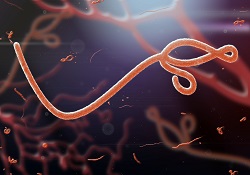Optimising research with non-human primates
Non-human primates play an essential role in biomedical research. Due to their genetic proximity to humans, the animal group provides models for genomic and biotechnical research in the health area. The importance of biomedical research in areas such as disease and organ transplantation means there are already extensive research activities going on at knowledge centres. Moreover, these labs are equipped with infrastructure resources for essential primate housing and breeding. High ethical demands on research into primates and the intrinsic complexity of primate physiology require specialised and highly competent research facilities. To raise the level of research even further, the EU-funded project Euprim-NET created a network for publicly-funded primate centres. An integrated infrastructure initiative was drawn up to provide the best services and support for primate-based animal research. Euprim-NET objectives included the optimisation of primate keeping and breeding facilities and the standardisation of procedures in biomedical research. Biobanks of high quality primate material were established and training provided for all staff involved with the animals. Objectives were met through four network activities, transnational activities and three joint research activities. Deliverables included a manual on primate husbandry and extensive training through seminars, workshops and distribution of educational material. Transnational access activities also included the Primocid platform to facilitate pre-clinical research in chronic immune-mediated diseases like rheumatoid arthritis. Actual examples of research supported under the Euprim-NET project are plentiful. New diagnostic assays for polyomaviruses, herpes B and some retroviruses have been developed and several commercially available tests were evaluated for specificity and sensitivity. Molecular typing of immune genes in macaques for understanding of pathogen susceptibility actually results in fewer animals being used for testing. In line with networking between remote labs, a high bandwidth telemetric device for remote electrophysiological recordings was proposed. Operators can receive wireless broadband recordings of neural spiking activity with simultaneous remote control of the microelectrode position. Euprim-NET work has improved standards in non-human primate research. More efficient development of drug therapies and strategies for conditions that impose a heavy cost on healthcare, such as neurodegenerative disorders and cancer, may be accelerated.







